Input interpretation

2, 4-dicyclohexyl-2-methylpentane
Chemical names and formulas
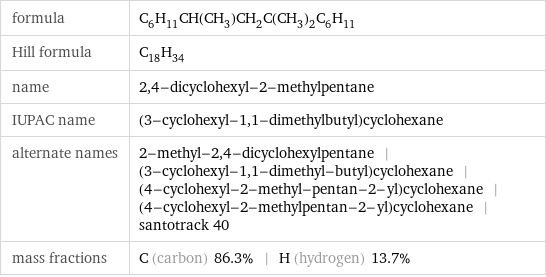
formula | C_6H_11CH(CH_3)CH_2C(CH_3)_2C_6H_11 Hill formula | C_18H_34 name | 2, 4-dicyclohexyl-2-methylpentane IUPAC name | (3-cyclohexyl-1, 1-dimethylbutyl)cyclohexane alternate names | 2-methyl-2, 4-dicyclohexylpentane | (3-cyclohexyl-1, 1-dimethyl-butyl)cyclohexane | (4-cyclohexyl-2-methyl-pentan-2-yl)cyclohexane | (4-cyclohexyl-2-methylpentan-2-yl)cyclohexane | santotrack 40 mass fractions | C (carbon) 86.3% | H (hydrogen) 13.7%
Lewis structure
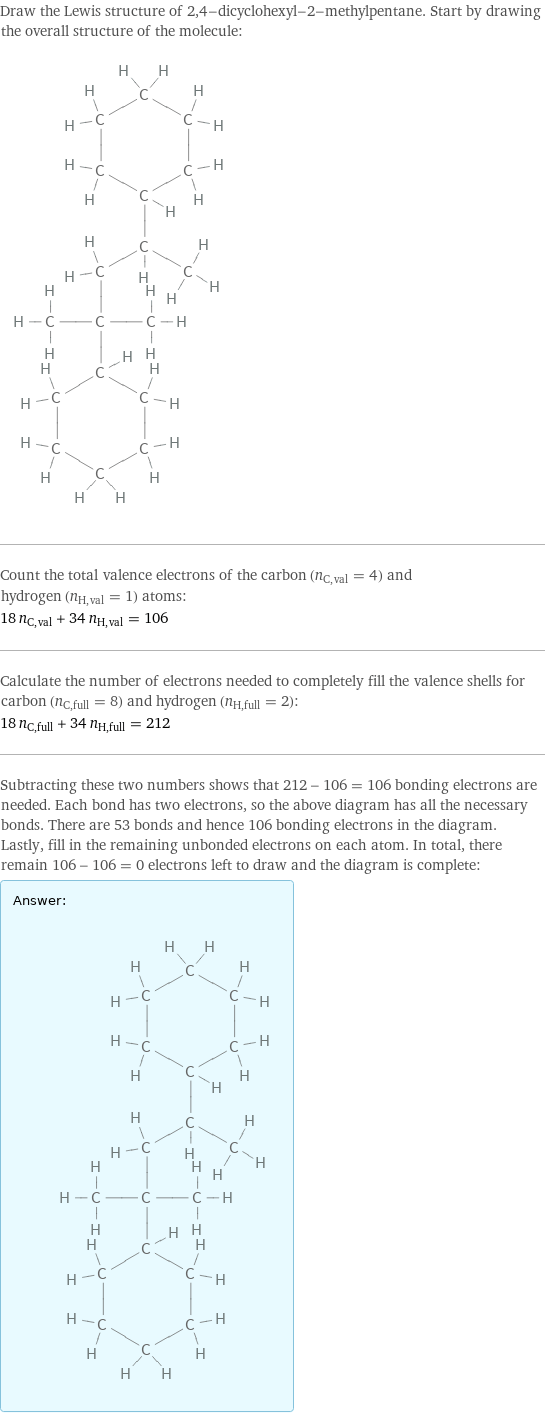
Draw the Lewis structure of 2, 4-dicyclohexyl-2-methylpentane. Start by drawing the overall structure of the molecule: Count the total valence electrons of the carbon (n_C, val = 4) and hydrogen (n_H, val = 1) atoms: 18 n_C, val + 34 n_H, val = 106 Calculate the number of electrons needed to completely fill the valence shells for carbon (n_C, full = 8) and hydrogen (n_H, full = 2): 18 n_C, full + 34 n_H, full = 212 Subtracting these two numbers shows that 212 - 106 = 106 bonding electrons are needed. Each bond has two electrons, so the above diagram has all the necessary bonds. There are 53 bonds and hence 106 bonding electrons in the diagram. Lastly, fill in the remaining unbonded electrons on each atom. In total, there remain 106 - 106 = 0 electrons left to draw and the diagram is complete: Answer: | |
3D structure
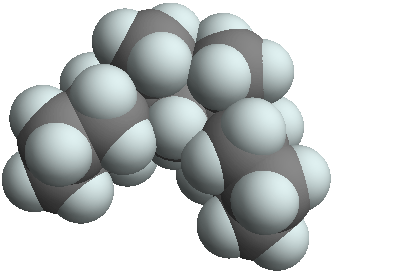
3D structure
Basic properties
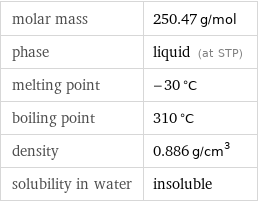
molar mass | 250.47 g/mol phase | liquid (at STP) melting point | -30 °C boiling point | 310 °C density | 0.886 g/cm^3 solubility in water | insoluble
Units

Liquid properties (at STP)
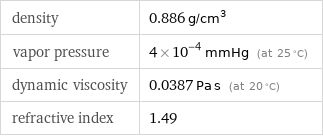
density | 0.886 g/cm^3 vapor pressure | 4×10^-4 mmHg (at 25 °C) dynamic viscosity | 0.0387 Pa s (at 20 °C) refractive index | 1.49
Units

Thermodynamic properties

molar heat of vaporization | 54.5 kJ/mol specific heat of vaporization | 0.218 kJ/g (at STP)
Chemical identifiers
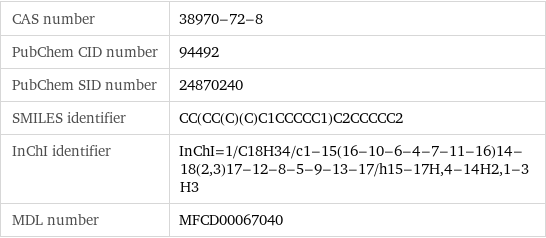
CAS number | 38970-72-8 PubChem CID number | 94492 PubChem SID number | 24870240 SMILES identifier | CC(CC(C)(C)C1CCCCC1)C2CCCCC2 InChI identifier | InChI=1/C18H34/c1-15(16-10-6-4-7-11-16)14-18(2, 3)17-12-8-5-9-13-17/h15-17H, 4-14H2, 1-3H3 MDL number | MFCD00067040
NFPA label

NFPA label
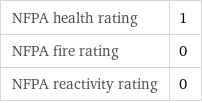
NFPA health rating | 1 NFPA fire rating | 0 NFPA reactivity rating | 0
Safety properties

flash point | 110 °C autoignition point | 225 °C

DOT hazard class | 3 DOT numbers | 3295